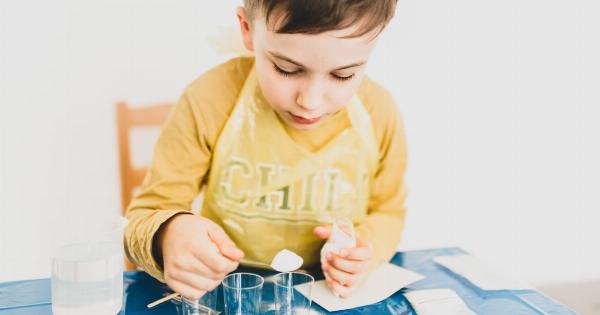Aging is an inevitable part of life. As we grow older, our bodies go through various changes and transformations. Many individuals wonder when they will start feeling the effects of aging and how it will affect their overall well-being.
While asking your mom for insight might give you some general ideas, it’s important to understand that everyone’s aging process is unique. In this article, we will delve into the topic of aging, explore its effects on different aspects of our lives, and discuss the factors that contribute to individual experiences of aging.
The Aging Process
Before exploring when the effects of aging become apparent, it’s crucial to understand the basics of the aging process itself. Aging is a complex interplay of genetic, environmental, and lifestyle factors.
It involves a gradual decline in the body’s ability to repair and regenerate itself, leading to a range of physical, psychological, and social changes. While some signs of aging may be visible externally, many internal changes also occur without our notice. The aging process affects every individual differently, making it difficult to pinpoint an exact age when its effects begin to manifest.
Physical Changes
One of the most noticeable effects of aging is the physical changes that occur in our bodies. These changes can vary widely from person to person and can be influenced by various factors such as genetics, lifestyle choices, and overall health.
Some common physical changes associated with aging include:.
- Wrinkles and Fine Lines: As we age, our skin gradually loses elasticity, leading to the development of wrinkles and fine lines.
- Gray Hair: The production of melanin, which gives color to our hair, decreases with age, resulting in the appearance of gray or white hair.
- Skin Texture and Tone: The texture and tone of our skin may become uneven and dull as we age due to a decrease in collagen production.
- Joint Stiffness: Aging can cause joints to become stiffer and less flexible, leading to discomfort and decreased mobility.
- Reduced Muscle Mass: With age, muscle mass naturally declines, making it important to engage in regular exercise to maintain strength and prevent muscle loss.
Psychological and Cognitive Changes
In addition to physical changes, aging can also bring about psychological and cognitive changes. While these changes might not be as noticeable as physical ones, they can significantly impact an individual’s well-being.
Some common psychological and cognitive changes associated with aging include:.
- Memory Loss: As we age, it is common to experience a slight decline in memory function. However, severe memory loss or cognitive impairment might be signs of underlying conditions such as Alzheimer’s disease.
- Changes in Sleep Patterns: Many older adults find it challenging to fall asleep or stay asleep through the night. Changes in sleep patterns can adversely affect overall health and energy levels.
- Emotional Well-being: Aging can bring changes in emotional well-being, leading to increased vulnerability to mood swings, anxiety, or depression. However, emotional health varies from person to person.
- Slower Cognitive Processing: As we age, cognitive functions such as information processing speed and multitasking abilities may decline, though wisdom and experience often compensate for these changes.
- Adaptability and Resilience: Many individuals develop a heightened sense of resilience and adaptability with age, enabling them to navigate life’s challenges more effectively.
Social and Lifestyle Impact
Aging doesn’t merely affect our bodies and minds; it also has social and lifestyle implications. The way we age and the effects we experience can be influenced by various factors, including:.
- Social Connections: Maintaining strong social connections, whether through family, friends, or community, can positively impact overall well-being and provide a support system as we age.
- Lifestyle Choices: The choices we make throughout our lives, such as diet, exercise, smoking, and substance use, can influence the way we age and the effects we experience.
- Financial Security: Economic factors play a significant role in how we age. Having financial security can alleviate stress and ensure access to necessary resources for a healthy and fulfilling life.
- Access to Healthcare: Adequate access to healthcare services, preventative screenings, and quality medical care can impact the way we age and manage any age-related conditions.
- Mental Stimulation: Engaging in mentally stimulating activities, such as puzzles, reading, or learning new skills, can help keep the mind active and may lower the risk of cognitive decline.
Individual Variations
While understanding the general effects of aging is essential, it’s crucial to recognize that every individual’s experience of aging is unique.
Factors such as genetics, lifestyle choices, socio-economic status, and overall health significantly influence how we age. Some individuals may start feeling the effects of aging earlier in life due to genetic predispositions or other circumstances, while others may experience more gradual changes.
Therefore, there is no one-size-fits-all answer to the question of when aging becomes noticeable.
When to Ask Your Mom?
Asking your mom about the effects of aging can provide some insights as to what you might expect. However, it is important to remember that her experience may not necessarily reflect your own.
Genetics does play a role in aging, so understanding your family’s medical history can give you a general idea of potential age-related conditions you might encounter. Nevertheless, it’s always recommended to consult with healthcare professionals who can provide personalized guidance based on your unique circumstances and health.
Conclusion
The effects of aging are a natural part of life. While it’s our human curiosity to wonder when we will start feeling its impact, determining an exact age is impossible due to the individual variations and complexities of the aging process.
As we age, it’s important to focus on maintaining overall well-being through healthy lifestyle choices, nurturing social connections, staying mentally stimulated, and seeking appropriate healthcare. Embracing the journey of aging with grace and acceptance allows us to make the most of each phase of life.





























